On this page you will find information on:
- How you can make a difference this Daffodil Day
- Meet Jessica Blunderfield, Retail Volunteer
- Annual report
- Regional cancer patients receive boost in support thanks to Federal Community Development Grant
- Colleen Does It For Cancer
- Treatment of chronic graft versus- host disease with regulatory T Cell direction therapy- insight from gene-marking
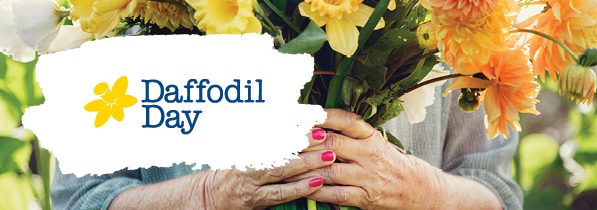
How you can make a difference this Daffodil Day
Daffodil Day 2017 is just around the corner!
On Friday, August 25, volunteers and supporters across Queensland will come together in their community to sell daffodils and merchandise, and raise vital funds for Cancer Council Queensland.
Last year $5.6M was raised across Australia, allowing us to provide support to thousands of cancer patients and their families.
Volunteers have always been at the heart of Daffodil Day! With your enthusiasm and passion on the day, we can continue the success of this event.
Even a small amount of funds raised from Daffodil Day can go a long way.
- $5 – Helps us give support and information resources to 5 people affected by cancer. Cancer Statistics.
- $10 – Helps us protect 10 children from potentially harmful sun exposure through our SunSmart school program.
- $50 – Makes sure there’s a cancer nurse available on 13 11 20 to offer practical information and emotional support to callers.
- $230 – Provides a financial assistance grant to someone with cancer experiencing severe financial difficulties, to help them travel to their treatments, pay their rent or keep their lights on.
- $900 – Funds a high-performing science student working in a research lab for 3 weeks, enabling them to conduct ground-breaking research into new
and better ways to prevent, diagnose and treat cancer.
If you’d like to volunteer this Daffodil Day, please click below
Volunteer on Daffodil Day
Meet Jessica Blunderfield, Retail Volunteer
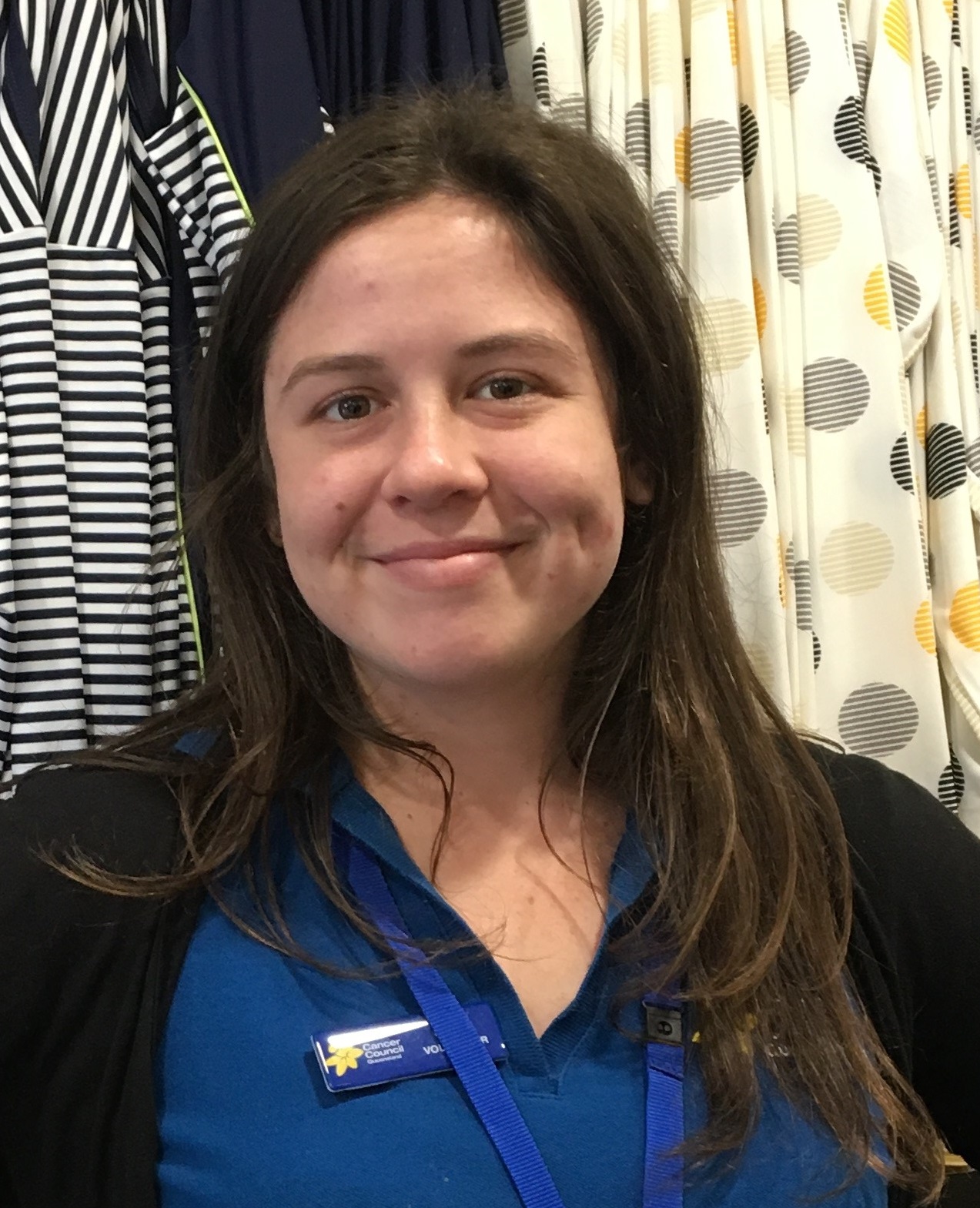
Jessica Blunderfield
Retail Volunteer
What is your role with CCQ? What does it involve?
My role is to assist with the SunSmart shop. This involves organising and replenishing stock, customer service and till duties.
How long have you been volunteering with CCQ?
I started volunteering with CCQ in March this year and I come in every Friday.
Why did you decide to get involved with CCQ? What was your motivation for volunteering?
For my public health degree, one of my units in my first year focused on health information and used Cancer Council Queensland as an example. My class attended a CCQ presentation about health information and statistics on cancer, cancer registries and the obtainment of cancer data. My motivation to apply for a volunteering position was to gain experience in an organisation that involves many aspects of public health, like preventative health products, statistical analysis of data and health information.
What do you love most about your volunteer role?
Talking to customers, volunteers and staff, and getting to know more about their lives. Connecting with people and the positive feeling of helping customers is very rewarding.
What has surprised you in your role?
How much I would enjoy the detail of organising clothes, sunglasses, sunscreen and hats and the feeling of satisfaction when the presentation of the shop’s stock is of a high standard.
What has been the most inspiring or memorable moment you’ve had since starting with CCQ?
I was able to have an insight into the support CCQ provided to a former cancer patient who became a volunteer. A staff member had supported this volunteer through their journey and had made such a positive difference in their life. On one of my first days, they finally met in the retail shop and it was lovely to see the interaction between them. It was a heartfelt moment to see an aspect of the amazing support CCQ provide for those affected by cancer.
What is your hope for the future? What do you hope your volunteering will achieve for cancer and CCQ?
I would really love to work with Indigenous Australians in areas of public health. I hope my efforts in the shop and hopefully other areas in the future, will promote cancer prevention and awareness, and help support cancer research.
What would you say to someone who was thinking about volunteering with CCQ?
Go for it! The staff are so friendly and the CCQ environment is calming and positive. It is lots of fun!
What do you feel you’ve gained through volunteering for CCQ?
Definitely a different perspective on life. One could get sick at any time, which could be stressful, so it’s important to practice mindfulness to try and maximise our daily experience and be happy with ourselves and our lives. We have to make the most of what we have and the circumstances we are in.
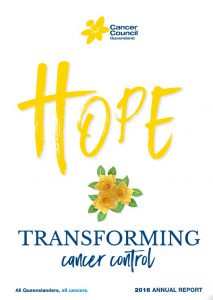
Annual report
The 2016 Annual Report is available to read on our website.
The report reflects our commitment to strengthening the foundations of cancer control in our community, by preventing cancer from occurring and improving quality of life and survival outcomes for those affected by the disease.
It provides and overview of our activities, achievements and financial statements in the past year.
Your support makes this possible, thank you.
Read the report
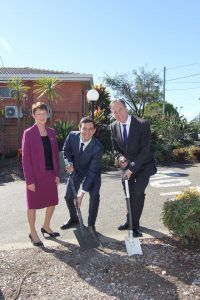
Regional cancer patients receive boost in support thanks to Federal Community Development Grant
The first sod was turned in June at Charles Wanstall Apex Lodge to signify the start of an upgrade, made possible by a $785,000 Federal Government grant.
This investment, awarded under the Commonwealth Community Grants Programme, is set to improve the quality of life and survival outcomes for all Queenslanders affected by cancer.
There are six accommodation lodges statewide that provide a potential 100,000 bed nights each year for cancer patients, carers and family, via patient travel schemes at little to no cost.
Each year the Charles Wanstall Apex Lodge accommodates around 1400 patients and their carers, while also providing 1600 episodes of transport and 640 occasions of support. This equates to about $1.8M worth of accommodation provided to patients at little to no cost.
This upgrade will not only help us to continue providing accommodation to regional cancer patients, but also ensure they stay in a facility that is comfortable.
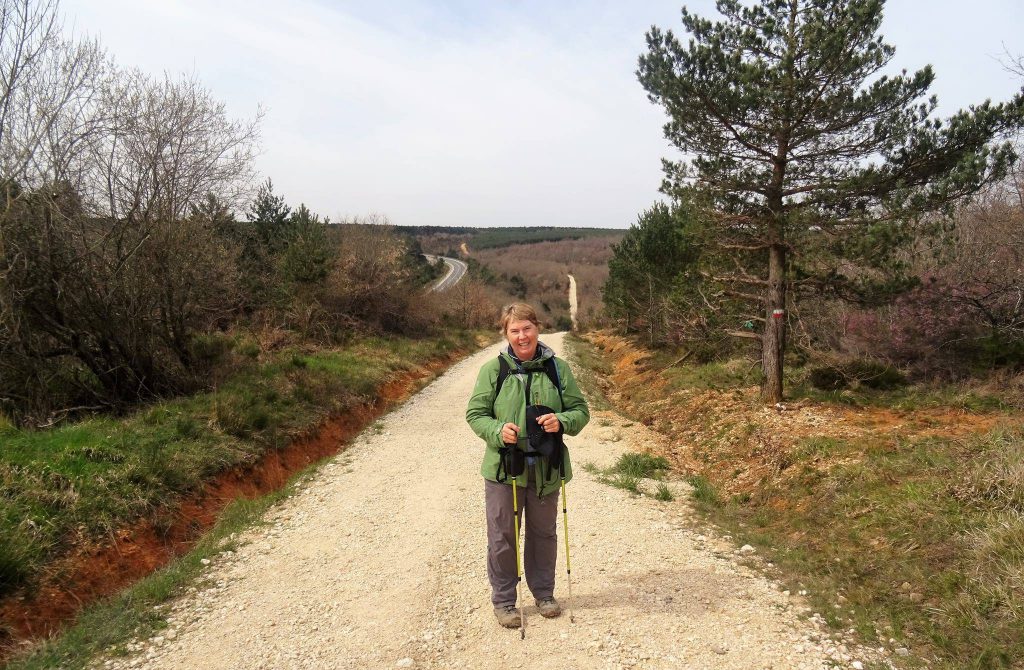
Colleen Does It For Cancer
In June, Colleen Nicholas began her ambitious 1000km trek along the Bibbulmun Track in Western Australia to raise funds for our Do It For Cancer campaign.
With a fundraising goal of $10,000, Colleen is walking solo and unassisted for six weeks between Perth and Albany.
A keen and experienced hiker, Colleen was compelled to make a difference after seeing so many in her local community, including members of her own family, affected by a cancer diagnosis.
Thank you, Colleen, for your amazing effort and spirit! You can support Colleen’s efforts below.
Donate to Colleen
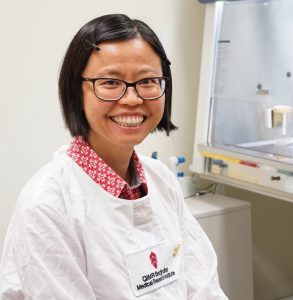
Treatment of chronic graft versus- host disease with regulatory T Cell direction therapy- insight from gene-marking
Principle Researcher: Dr Siok Tey
Co-Chief Investigator: Associate Professor Glen Kennedy Professor David Gottlieb
Project Location: Bone Marrow Transplant Laboratory- QIMR Berghofer Medical Research Institute
Project Outline:
Bone marrow transplantation is often the only curative option for high risk leukaemia and lymphoma. Its curative potential lies in the ability of the newly acquired donor immune system to eradicate residual cancer cells.
However, the donor immune response can also damage recipient tissues in a process known as graft-versus-host disease (GVHD).
Chronic GVHD affects 40-70% of long term survivors of bone marrow transplantation. It can be extremely debilitating. Patients with severe chronic GVHD typically have skin and mouth ulcers, joint contractures, severe dry eyes, respiratory obstruction and recurrent infections. Immunosuppressive drugs help, but response is often incomplete and medications can cause serious complications.
There is, therefore, an urgent and unmet need for better treatment approaches.
Regulatory T cells (Treg) are a type of immune cell. The infusion of Treg cells shows promise in treating chronic GVHD but progress in the field is hampered by not understanding the fate of these Treg cells following clinical infusion.
We will investigate, in a phase I clinical trial, the use of regulatory T-cell (Treg) infusion to treat chronic GVHD. Our study will be unique because we will ‘gene-mark’ the Treg cells before infusion.
This allows us to track the fate of the Treg cells after infusion and investigate the means by which their effect can be enhanced, for example, with co-administration of other drugs, such as interleukin-2. Our study will provide important insight on Treg infusion in a real life clinical setting and improve the treatment of GVHD amongst leukaemia survivors.
Project Goals:
To manufacture a novel gene-modified T-Cell (Treg) product.
To conduct a small phase I clinical study using Treg cells in patients with moderate or severe chronic GVHD.
Track the fate of these infused cells using our unique gene-marking strategy, and establish the safety and effectiveness of combination therapy using interleukin-2 and Treg infusion.
